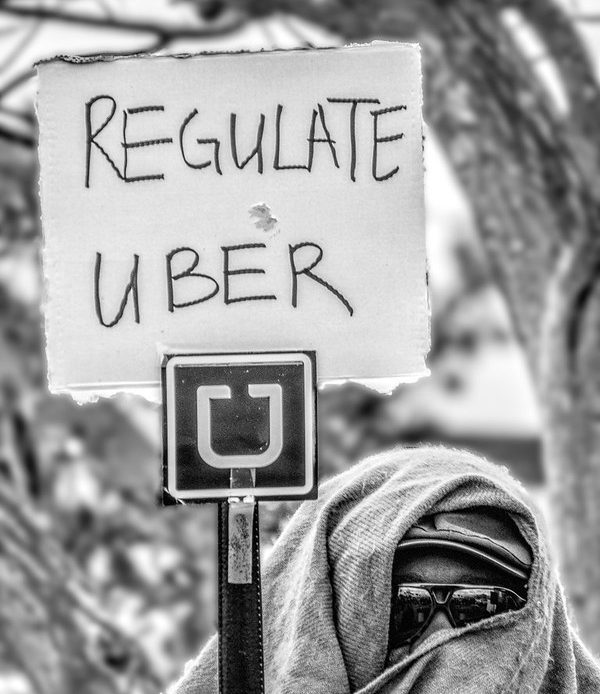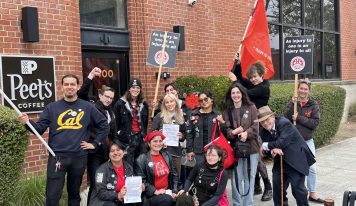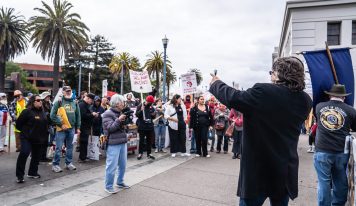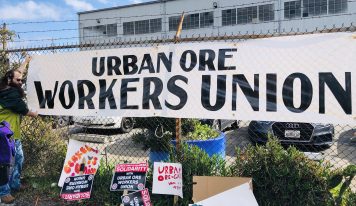At the time of this writing, proponents of California’s Proposition 22 have spent over $203 million advocating for the measure, the most expensive campaign in the history of the United States. Spending aside, Prop 22 is one of the most controversial measures in California’s history, drafted for the benefit of the usual suspects among gig-based tech companies – Uber, Lyft, DoorDash, and Instacart – in an effort to keep their workers classified as non-employees.
Stated plainly, supporters of Proposition 22, also known as the App-Based Drivers as Contractors and Labor Policies Initiative, seek to permanently classify gig-economy workers as independent contractors, not as employees or agents, effectively denying mandatory labor protections in lieu of specific app-based benefits and policies. The rationale for this measure is typified by the standard ‘be your own boss, set your own hours’ rhetoric of the gig economy, as if an uncertain paycheck and zero employment protections are aspirational.
Key Takeaways: Negative Impacts on Gig Workers
- Gig workers will not be given full-time healthcare benefits, and will instead receive a stipend for part of the cost of the lowest-tier Covered California plan.
- Workers are coerced to declare their intention to vote for Prop 22 in their apps, which is legally dubious.
- Most app-based gig business models are only feasible if they can avoid proper compensation and protections for workers.

Photo Credit: “Anonymous Uber Driver” by Wayne S. Grazio is licensed under CC BY-NC-ND 2.0
In Depth
In practice, Prop. 22 essentially carves an exception into Assembly Bill No. 5, which was signed into law last September and put into effect in January of this year. AB 5 codifies a 2018 finding by the Superior Court of Los Angeles, which says that all workers-for-hire will be assumed to have the protections and benefits of an employee, and it is up to the company to show otherwise
Prop. 22 punches a hole through this law and the protections it offers California workers by making an exception for app-based workers. By skirting the hard-fought labor rights enshrined in the law, gig companies are able to profit off the difference.
Under Prop. 22, drivers who qualify for health care benefits would get a stipend they could use to buy an insurance plan from Covered California, the state’s health insurance marketplace.
The companies would give qualified drivers a stipend of 82% of the average bronze-level plan premium – $.82 on the dollar – for drivers who average 25 hours per week of “engaged” time, which does not include time spent waiting between jobs. A driver who averages at least 15 but less than 25 hours of engaged time each week would be eligible for 50% of the stipend — or $41 per month.
The veneer of being beneficial quickly falls away. Most drivers work part time and many drivers only work for a short time or only drive occasionally, spending about one-third of their time waiting for rides and deliveries and are not paid during this time. Based on the above metrics, drivers would need to work an average of 37.5 hours per week for a single company in order to receive the full stipend. The Average Lowest-Cost Bronze Premium in California for 2020 is $314 a month.
Corporate supporters of Prop. 22 point to how many of their own workforce promote the proposition. However, many of the drivers are coerced to show said support, including requisite check-boxes before they are allowed to sign into the app. DoorDash dispatched millions of paper bags emblazoned with pro-22 messaging to hundreds of restaurants statewide so workers would deliver meals in them. Multiple lawsuits have been filed over this behavior, and its legality remains to be determined.
What Uber and Others Stand to Gain
It is important to reiterate why Prop. 22 matters and why these companies are hellbent on buying this particular legislative measure. Uber is a pioneer in the gig economy and depends on completely unprotected labor for its business model to work. To classify their drivers as employees would be a death knell to their entire infrastructure. Like so many services we enjoy at the tap of a finger, Uber are only as accessible as their completely interchangeable and exploitable labor force is. To pay them a salary and provide them benefits would collapse the house of cards.
Facebook’s motto may once have been ‘move fast and break things’ but with Uber it’s been more ‘move fast and don’t pay.’ Prop. 22 represents the final realization of this fever dream, a legal permission slip to completely undermine employment law and all the protections these drivers might otherwise enjoy. Amending Prop. 22 would require a seven-eights (87.5%) vote in each chamber of the California State Legislature and the governor’s signature, provided that the amendment is consistent with, and furthers the purpose of, Prop. 22. In other words, there is no putting this horse back in the barn if Prop. 22 passes.
What Prop 22 Means for the Nation’s Future
The implications of this are far reaching. We are living in a country facing record unemployment, eviction, and desperation among its citizenry. The gig economy has taken the mantle of providing faux livelihood and entrepreneurship for anyone who wants it, but in practice it is a continuation of tech conglomerates exploiting those who have nowhere else to turn. Earlier this year, a new startup Civvl launched and made headlines, pejoratively, as “Uber, but for evicting people.” Civvl’s model is to use process servers and eviction agents as gig workers, noting that “There is plenty of work due to the dismal economy…Literally thousands of process servers are needed in the coming months due to courts being backed up in judgments that needs to be served to defendants.”
Civvl is the latest gig economy offering from OnQall, an app that provides “on-demand task services to non-urban communities beyond main city areas”, whose other offerings include LawnFixer, CleanQwik, MoveQwik, and whatever the next abominable portmanteau is profligate in Silicon Valley’s continuing war on vowels and syntax. As we see the continued expansion of gig economy jobs preying on the desperate, it becomes ever more important to advocate for labor protections lest the next app be an amalgamation of whatever your current employment is. We have seen a continued stripping of labor protections across once prominent institutions: News, education, entertainment, and too many others to count. To imagine these jobs as on-demand once seemed beyond the pale but under current trends it is looking increasingly likely that the Nation’s workforce is at risk of being casualized just as the taxi industry was.





